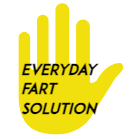How To Make Your Baby Fart?
Babies are adorable bundles of joy, but when trapped gas causes discomfort, it can turn their smiles into cries. As a parent, you want to provide immediate relief and help your little one find comfort. That’s where the art of making your baby fart comes in.
In this article, we’ll explore effective techniques on how to make your baby fart and gentle exercises to help release trapped gas from your baby’s tummy.
From gentle tummy massages to bicycle leg movements, we’ll guide you through simple yet powerful methods to alleviate your baby’s discomfort.
Get ready to become a master in the art of helping your baby find relief and restore those giggles and grins!

Signs of Gas in Babies
Before getting into the answer of how to make your baby fart.
Identifying the signs of gas in your baby can help you take prompt action to alleviate their discomfort. Some common signs include
- Fussiness and irritability
- Pulling legs towards the tummy
- Frequent crying during or after feeding
- Hard or distended tummy
- Difficulty sleeping
How To Make Your Baby Fart?
When your little bundle of joy is suffering from trapped gas, you’ll do anything to provide relief. That’s why knowing how to make your baby fart is an essential skill for every parent.
From tummy massages to leg movements, we’ll explore a range of methods that can help release trapped gas and promote digestive comfort.
So, if you’re ready to become a pro at helping your baby find relief, join us as we dive into the world of soothing techniques to make your baby fart.
Take a look at 7 Techniques to Help Your Baby Fart
Massaging Your Baby’s Tummy:
Massaging your baby’s tummy is a gentle and effective technique to alleviate discomfort and promote digestion. Using your fingertips, make circular motions in a clockwise direction on your baby’s abdomen.
This can help stimulate bowel movements, relieve gas, and relax the abdominal muscles. Always ensure a gentle touch and stop if your baby shows signs of discomfort.

Using Warm Compress:
Another method how to make your baby fart is using a warm compress. Using a warm compress on your baby’s tummy can provide soothing relief and aid in relieving gas. Take a clean cloth or towel, soak it in warm water, and wring out the excess moisture.
Place the warm compress gently on your baby’s abdomen for a few minutes.
The warmth helps relax the muscles and encourages the release of trapped gas, promoting comfort. Always ensure that the temperature is safe and comfortable for your baby’s delicate skin.
Using Leg Cycling Exercises:
Leg cycling exercises are a simple yet effective way to help your baby release trapped gas and relieve discomfort. Lay your baby on their back and gently hold their legs.
Move their legs in a cycling motion, mimicking the pedaling of a bicycle.
This movement can stimulate the digestive system and encourage the passage of gas, providing relief for your baby.
Increase tummy time:
Increasing tummy time is another effective way to help your baby fart. By placing your baby on their tummy while they are awake and supervised, you can encourage the natural release of gas.
Tummy time not only aids in digestion but also strengthens your baby’s neck, back, and shoulder muscles.
Pay attention to positioning:
Pay attention to your baby’s positioning to assist in farting. Ensure that their body is properly aligned and supported during feeding and burping.
Additionally, when carrying or holding your baby, keep their head higher than their tummy to facilitate the passage of gas. Proper positioning can help relieve discomfort and promote effective farting.
Try gripe water:
Gripe water is a natural remedy that can help relieve gas in babies. It contains soothing ingredients like ginger, fennel, and chamomile, which aid in digestion and provide relief from gas-related discomfort.
Consult with your pediatrician and consider trying gripe water as a safe option to help your baby fart and ease their discomfort.
Burp your baby often:
Burping your baby frequently during and after feedings is crucial in preventing gas buildup.
Take short breaks during feeding sessions and gently pat or rub your baby’s back to encourage burping.
Burping helps release trapped air from their stomach, reducing the chances of gas-related discomfort and promoting better digestion.
Read on: How to get rid of trapped farts.

What Causes Flatulence In Babies?
Flatulence, or the passing of gas, is a common occurrence in babies. Several factors can contribute to flatulence in infants:
Swallowed Air:
Swallowed air, also known as aerophagia, is a common cause of flatulence in babies. During feeding or crying, infants often gulp in the air unknowingly.
This trapped air then moves through the digestive system, leading to the accumulation of gas in the stomach and intestines. Eventually, this gas is released through burping or passing gas, causing the characteristic flatulence sound.
Immature Digestive System:
Newborns have developing digestive systems that may struggle to break down specific components of breast milk or formula, resulting in gas production.
Overfeeding:
Feeding a baby more than their stomach can handle overwhelms their digestive capacity. This excess food can ferment, causing gas and bloating.
Intolerance or Sensitivity:
Some babies might have trouble digesting certain proteins (like lactose) or other breast milk or formula components. This can lead to fermentation by gut bacteria, producing gas as a result.
Rapid Feeding:
When a baby feeds too quickly, they gulp down both milk and air. The ingested air can get trapped in the digestive tract, contributing to the formation of gas bubbles and subsequent flatulence.
Gastrointestinal Issues:
Gastrointestinal issues can also contribute to flatulence in babies. Conditions such as gastroesophageal reflux disease (GERD), colic, or constipation can disrupt normal digestion and lead to increased gas production.
In these cases, the imbalance in the digestive process can result in excess gas and discomfort, causing the baby to experience frequent flatulence.
It’s important to note that occasional flatulence is normal in infants. However, if your baby experiences persistent or severe discomfort, or if you have concerns about their digestive health, it is advisable to consult a pediatrician for further evaluation and guidance.
Now that you know how to make your baby fart you might be wondering Why Is your Baby’s Tummy is Hard?
Let’s take a look
Why Is My Baby’s Tummy Hard?
A hard tummy in a baby can be concerning for parents. There are several possible reasons why your baby’s tummy may feel hard:
Gas and Constipation:
If your baby’s tummy feels hard, it might be due to gas or constipation. Gas can accumulate in the intestines, causing the abdomen to feel bloated and firm.
This can result from factors like swallowed air during feedings or an immature digestive system. Constipation, on the other hand, can lead to the accumulation of stool in the intestines, causing discomfort and a tense tummy
Overfeeding:
Overfeeding can lead to various issues, including a hard tummy in babies. When a baby is fed more than their stomach can comfortably accommodate, consequently, their digestive system may struggle to process the excess milk or formula.
This can result in bloating, discomfort, and a distended abdomen
Colic:
Colic is a condition characterized by excessive, inconsolable crying and discomfort in infants, often accompanied by a hard tummy.
The exact cause of colic is not fully understood, but it’s believed to be related to gastrointestinal issues, such as trapped gas, immature digestion, or sensitivity to certain components in breast milk or formula.
Gastrointestinal Issues:
Gastrointestinal issues can lead to a baby’s tummy feeling hard. Conditions like constipation, gastroesophageal reflux disease (GERD), or gastrointestinal infections can disrupt normal digestive processes and can result in a firm abdomen.
Tension or Muscle Rigidity:
Tension or muscle rigidity can also cause a baby’s tummy to feel hard. Babies might exhibit this due to discomfort, pain, or an attempt to relieve gas or constipation.
They might clench their abdominal muscles, leading to a visibly tense and firm abdomen. Various factors, including colic, trapped gas, or even the baby’s response to certain foods, could contribute to this tension
If you are concerned about your baby’s hard tummy or if they exhibit signs of distress, it is recommended to consult a pediatrician. They can evaluate your baby’s condition, provide an accurate diagnosis, and offer appropriate guidance and treatment options.
Frequently Asked Questions
How can I make my baby gas-free?
To help reduce gas in your baby, firstly, ensure proper feeding techniques, such as upright positioning and burping after each feeding.
Additionally, incorporating gentle tummy massages, leg cycling exercises, and utilizing warm compresses can further aid in relieving discomfort and promoting gas release.
Pay attention to their diet and consider consulting a pediatrician if the issue persists.
Should I help my baby fart?
Yes, helping your baby fart can provide relief from gas discomfort. Techniques like burping, tummy massages, leg cycling exercises, and using warm compresses can assist in releasing trapped gas.
Always ensure gentle and safe practices when helping your baby with farting.
When can babies fart easily?
Babies begin to fart easily as their digestive system matures, usually within the first few months of life. As their gastrointestinal system develops, gas can pass more easily, leading to fewer instances of discomfort.
Although, every baby is different, so it’s important to continue implementing techniques to aid in farting when needed.
Does gripe water help babies fart?
Yes, gripe water can help babies fart and alleviate gas-related discomfort. Gripe water contains natural ingredients like ginger and fennel, which can aid in digestion and soothe the digestive system.
Conclusion
In conclusion, knowing how to make your baby fart is an essential skill for parents.
By implementing techniques like those mentioned above, you can assist in releasing trapped gas and relieving discomfort.
Remember to be attentive to your baby’s cues and consult with a healthcare professional for personalized guidance. With these strategies, you can promote better digestion and ensure a more comfortable experience for your little one.




